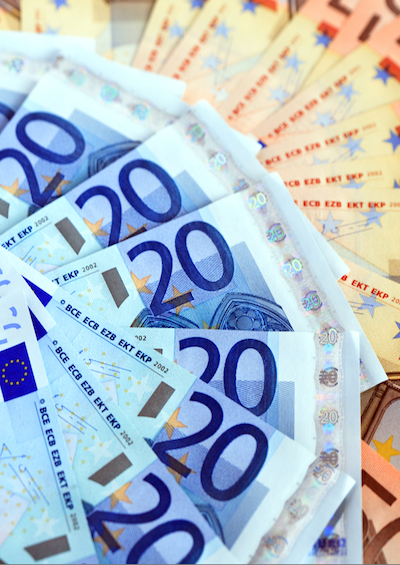Germany Vs. Greece: Behind the Headlines
Germany’s actual position on Greece.
January 8, 2015

“Germany preparing for potential Grexit”; “Germany open to Greek debt talks after election,” “Merkel backs Greece in Euro.” There seems to be no end to the headlines. Most of them seem to contain at least a kernel of truth. But the way they are presented or used out of context can be misleading.
For what it’s worth, let me summarize what I consider to be the “German position” on Greece. By that I mean the mainstream view probably held, with the usual nuances, by many of the 80-85% of German policymakers who voted for the support packages for Greece and other euro peripheral countries in the past.
1. Germany wants Greece to stay in the euro.
2. Germany is praising Greece for its heroic adjustment and reform efforts which started to bear fruit in 2014 with a rebound in GDP and employment, a primary fiscal surplus and a major surge in services exports.
Berlin correctly believes that, by and large, Greece is on the right economic and fiscal track.
3. Germany as a major player in the Eurozone is ready to support Greece with sufficient amounts of credit and guarantees at generous terms to help Greece complete its adjustment program.
4. Once Greece and the troika resolve their differences over what Greece needs to do to receive the last €7.2 billion of official funding under the second support program, follow-up support for Greece can be negotiated.
5. After the successful conclusion of the second program, extended from the end of 2014 to the end of February 2015, a follow-up support program could be much less onerous than the first two programs.
As Greece achieved a significant primary surplus in 2014, the new program for 2015 and beyond could be a mere credit line with light conditionality. No reform reversal would be the key condition.
6. After the successful conclusion of the current program — that is, with Greece honoring its part of the deal with Europe and the IMF as certified by the troika, Europe can offer to further lighten the Greek debt burden. That would not be a cut in the outstanding nominal value.
Also, for the bulk of official credits to Greece, interest rates are already extremely low (Greece pays roughly 2.5% on its overall public debt) with long grace periods and very long maturities. But for those parts of Greece’s debt to official creditors which are not yet quite as generous, interest rates could be reduced while maturities and grace periods could be lengthened.
Also, EU-funded investment in Greece could be stepped up further with even more generous co-financing requirements.
7. All support is conditional. If Greece wants further support, it must stick to the terms it has already agreed with its official creditors. And it must do so under whatever government it elects.
8. If the troika of European Commission, ECB and IMF finds that Greece is violating the conditions badly, the last tranche of the current support program could not be paid and no new program could be passed.
9. Europe cannot be blackmailed. The occasional threat from the Greek ultra-left to “call Berlin’s bluff”– namely, to renege on the troika agreements and still expect to get further support because Europe would be afraid of the consequences if the money ran out for Greece — will not work.
If Greece – under whatever government – refuses to honor the terms it has agreed with its official creditors, it would do so at its own risk.
10. If Greece decided to renege on its part of the deal with Europe and the IMF, the contagion effects on other European countries would be limited.
With ESM support funds, the readiness of the ECB to act and with progress towards banking union, Europe could cope with a hypothetical Greek accident.
Even in 2012, when contagion risks were more pronounced, Germany would not have supported a Greek government that would have reneged on its obligations to Europe and the IMF.
In mid-2012, Antonis Samaras learned that within days of taking office as prime minister. With contagion risks smaller now, no new Greek prime minister could expect that fear of contagion could prod Berlin, Brussels and Frankfurt into granting further credit to a borrower that is repudiating the existing agreement with Greece’s official creditors.
11. Details of any program are negotiable. Diplomacy is about finding a way for everybody to save face.
Any Greek government that is seen as negotiating in good faith could be offered some flexibility on details by its international creditors. But that would only be in return for a firm commitment to fiscal rigor and structural reforms, not in response to a large-scale reform reversal, as Syriza seems to be promising in its election campaign.
All in all, I do not see a major shift in the German position: tough love. Support is generous but conditional. And the notion that support is conditional does imply that conditions need to be met. Not 100% in all details. Life is never perfect. But they need to be met to a sufficient degree before parliaments of Greece’s creditor countries could endorse further support for Greece.
Takeaways
Europe cannot be blackmailed.
If Greece – under whatever government – refuses to honor its terms, it would do so at its own risk.
Europe could cope with a hypothetical Greek accident. The contagion effects on other countries would be limited.
Details of any program are negotiable. Diplomacy is about finding a way for everybody to save face.
Any Greek government that is seen as negotiating in good faith could be offered some flexibility on details by its international creditors.

